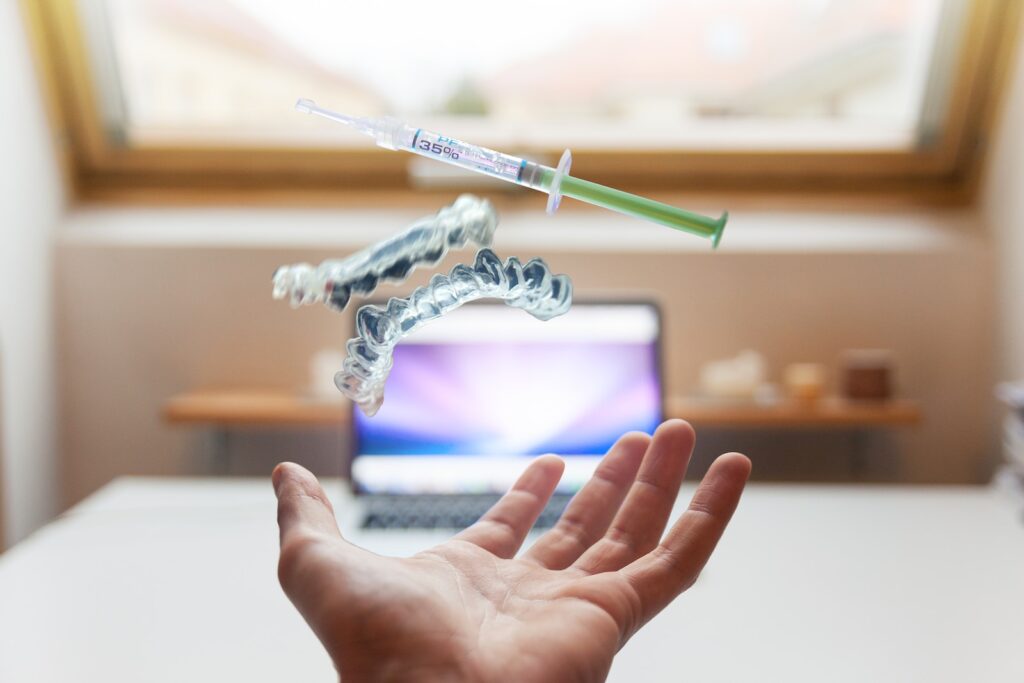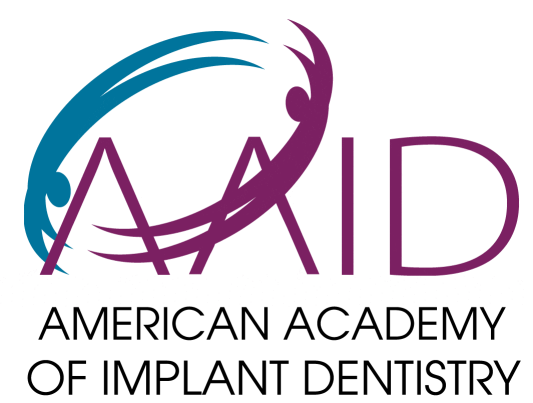Discover everything you need to know about orthodontic treatments – from traditional braces to modern alternatives, treatment timelines, and how to determine if orthodontic care is right for you. Our experienced dental team guides you through every step of achieving your perfectly aligned smile. Looking for orthodontic treatment in Leesburg, Ashburn, Sterling, or Lansdowne? Lansdowne Family Dental provides expert orthodontic care for patients of all ages.
What is Orthodontics?
Orthodontics is a specialty field of dentistry focused on correcting misaligned teeth and jaws. Orthodontists use appliances like braces and Invisalign to gently move teeth into their optimal positions over time. The goal is to create a healthy, functional bite and a beautiful new smile.
Some key facts about orthodontics:
- Orthodontic treatment corrects issues like crooked, crowded, gapped, or protruding teeth.
- It can also fix overbites, underbites, crossbites, and other improper bites.
- Treatment is often recommended for children, but adults can benefit too.
- On average, orthodontic treatment takes 1-3 years depending on severity. Less intense cases may only take 6-12 months.
- Success requires wearing appliances as directed and practicing good oral hygiene.
- Treatment is tailored to each patient’s specific needs. No two treatment plans are alike.
- Both children and adults can benefit from orthodontic treatment. There is no age limit.

Signs You May Need Orthodontic Treatment
Not sure if you’re a candidate for orthodontics? Here are some common signs that may benefit you or your child:
| Issue | Symptoms | Effects if Untreated |
| Crooked, Crowded Teeth | Teeth overlapping, flaring out. | Increased decay and damage. Jaw and bite problems. |
| Gapped Teeth | Large spaces between teeth. | Teeth drift out of position. Jaw and periodontal issues. |
| Overbite | Top front teeth extend over the bottom front. | Chewing and biting difficulty. Jaw pain. |
| Underbite | Bottom front teeth extend over the top front. | Chewing and biting difficulty. Jaw pain. |
| Crossbite | Misaligned top and bottom jaws. | Abnormal tooth wear. Facial muscle strain. |
| Protruding Teeth | Front teeth stick out beyond normal. | Chipping, breakage, enamel wear. |
| Asymmetrical Smile | Uneven positioning or spacing of teeth. | Face/jaw alignment affected. Impaired chewing. |
| Grinding/Clenching | Habitual grinding or clenching of teeth. | Tooth damage and wear. Jaw pain. Headaches. |
| Jaw Pain | Chronic jaw pain or soreness. | Difficulty chewing. This may indicate TMJ/TMD issues. |
| Chewing/Biting Issues | Difficulty with chewing or biting. | Poor nutrition. This may indicate underlying bite issues. |
| Speech Impediment | Issues pronouncing certain sounds. | Social and speech challenges. |
| Mouth Breathing | Habitual breathing through the mouth. | May affect jaw development or sleep apnea if severe. |
| Disproportionate Jaws | Upper and lower jaws are significantly mismatched. | Bite and alignment problems. Impaired chewing. |
Schedule a consultation with our orthodontist to determine if treatment is recommended. The earlier bite and alignment problems are corrected, the less invasive treatments tend to be.
The Benefits of Orthodontic Treatment
Correcting bite issues and straightening teeth offers a variety of health and aesthetic benefits:
Health Benefits
- Improved oral hygiene: Straight teeth with proper alignment are easier to keep clean. This reduces plaque buildup and improves gum health.
- Reduced tooth decay and disease: When teeth are crowded or crooked, it’s harder to brush and floss effectively. Orthodontics facilitates better cleaning.
- Less risk of injury: Protruding teeth are more prone to chipping and breaking. An orthodontist can align teeth to reduce the risk of damage.
- Optimized chewing and eating: Correcting bites allows for improved eating and digestion due to optimal molar alignment.
- Clearer speech: Aligners position teeth and jaws for cleaner speech and pronunciation.
- Decreased dental wear and strain: An orthodontist can ensure teeth meet properly, reducing abnormal wear and tear.
- Jaw pain relief: By realigning the jaws and bite, orthodontics can relieve jaw pain, headaches, and TMJ issues.
- Better digestion: Good bite alignment enhances how the jaws work together during chewing and swallowing.
Cosmetic Benefits
- Improved smile aesthetics: Straight, well-positioned teeth are inherently more attractive.
- Increased self-esteem and confidence: Those with an improved smile often feel more self-assured.
- Younger facial profile: Aligned jaws and teeth create a more toned, youthful facial appearance.
- Lip support and balance: Orthodontics can provide ideal support for the lips, reducing strain.
- Facial symmetry: Adjusting the position of teeth creates better harmony and proportion across facial features.
- Wider smile: Expanding narrow arches make room for straightened teeth. This creates a broader, brighter smile.
- Reduced premature wrinkles: Orthodontics can decrease strain on facial muscles that leads to wrinkles over time.
Common Orthodontic Appliances
Orthodontists have many appliances to choose from when mapping out customized treatment plans. The most common options include:
| Appliance | Description | Pros | Cons |
| Traditional Metal Braces | Brackets bonded to teeth connected by wire. The orthodontist adjusts wires/elastics to move teeth. | Effective for complex cases. Fully customizable treatment. | Visible. Can be uncomfortable. |
| Ceramic Braces | Tooth-colored ceramic brackets, otherwise like metal braces. | Blend in more with teeth. Less visible. | Still visible. Slightly more breakable. |
| Invisalign Clear Aligners | Series of removable clear plastic trays worn to move teeth. | Nearly invisible. Removable for eating, and brushing. | Not for complex cases. Must be worn 22 hrs/day. |
| Lingual Braces | Brackets bonded to the backs of teeth. | Nearly invisible. | Can impact speech and comfort. Difficult to clean. |
| Retainers | Worn after braces to hold teeth in new positions. | Maintains smile; prevents relapse. | Must be worn long-term. |
| Headgear and Facemasks | Apply gentle extraoral pressure to guide jaw growth. | Effective for children. | Visibility. Wearing as directed is critical. |
| Herbst Appliances | Correct overbites by influencing jaw position. | Quick results. | Can cause discomfort. Requires adjustments. |
We’ll evaluate your specific case and recommend the appliances that will work best for your treatment goals.
The Orthodontic Treatment Process
If you pursue orthodontic treatment with Lansdowne Family Dental, here is an overview of what you can expect:
Initial Consultation
Your first appointment will be a clinical evaluation. We’ll take x-rays, photos, and digital scans to thoroughly assess your teeth and bite. Next, we’ll discuss your concerns, goals, treatment options, and estimated timelines and costs in detail.
Appliance Fitting
At your next visit, we’ll fit you with custom-made aligners, braces, retainers, or other appliances your orthodontist prescribes. We’ll show you how to adapt to them and provide instructions for care and hygiene.
Ongoing Adjustments
You’ll come in periodically so we can monitor your progress and make minor adjustments to your appliances. We’ll also address any questions or discomfort. Appointments are usually 4-8 weeks apart.
Retention Phase
Once teeth reach the desired positions, you’ll begin wearing retainers full-time. Later this transitions to nighttime-only wear. Retainers help teeth stay in corrected positions for a long time.
Follow-Up Visits
Even after treatment, you’ll need occasional dental check-ups. We want to ensure teeth remain aligned and catch any new issues early. You’ll also receive advice on wearing retainers.
We’re invested in achieving and maintaining your ideal, healthy smile! Our skilled Lansdowne orthodontists offer quality treatment with compassionate care.
Considering Orthodontics? Next Steps
We hope this comprehensive overview has enhanced your understanding of the orthodontic process! Lansdowne Family Dental is here to answer your remaining questions and get you started on your journey to an amazing new smile.
To request your initial orthodontic consultation, simply call us or request an appointment on our website. Our warm, knowledgeable team looks forward to helping you smile confidently!






